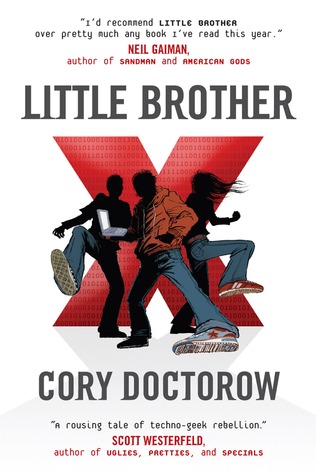 When the last agent under his command is killed and Alec Leamas is called back to London, he hopes to come in from the cold for good. His spymaster, Control, however, has other plans. Determined to bring down the head of East German Intelligence and topple his organization, Control once more sends Leamas into the fray - this time to play the part of the dishonored spy and lure the enemy to his ultimate defeat.
When the last agent under his command is killed and Alec Leamas is called back to London, he hopes to come in from the cold for good. His spymaster, Control, however, has other plans. Determined to bring down the head of East German Intelligence and topple his organization, Control once more sends Leamas into the fray - this time to play the part of the dishonored spy and lure the enemy to his ultimate defeat.The first time I became interested in John le Carré's work was when Tinker Tailor Soldier Spy with Benedict Cumberbatch was advertised prior to its release. I'm a huge fan of Cumberbatch (or The Batch, as he is affectionately known) whose Sherlock won me over, and curious about the movie I suggested the book for my book club's reading list. Majority asked for a more famous novel by le Carré so here we are.
It is easy to understand why this book has stood the test of time: it is a fast-paced, intelligent, emotionally-engaging thriller with characters who are easy to care about and even the shift of perspective from what I would describe as "inner circle third person" to "outsider third person", which was quite obvious, didn't change that. I think le Carre employed this device to hide certain things from the reader without making Leamas an unreliable narrator. He was counting on the reader to figure out what was really happening as the novel progressed and with the little hints along the way it wasn't that hard. The book could've become boring at that point considering that the action isn't in chases or gun-fights but in a steady execution of the plan, but le Carre had an ace up his sleeve. With the perspective back to "inner circle third person" the reader got to realize along with Leamas that he wasn't as inner circle as he thought he was. A three-level conspiracy, my friends, how delicious is that?! I won't say more for the sake of not spoiling the ending, but you see how this book is never exactly what it seems at first, with characters pursuing secret agendas to the very end.
Written in the middle of the Cold War and being a spy thriller it is no surprise that this book pits characters who are both physically and figuratively on different sides of the Berlin wall against each other. Le Carre talks ideology here and doesn't leave any room for doubt as to which side he is on. I don't know how historically accurate the details are and the year on the calendar didn't allow for ambiguity if one wanted to be published and widely read, but the fact remains. While there aren't any gray areas as far as le Carre's and Leamas' allegiances go there are plenty of them in the rest of the novel. I suppose it is like that in the business of spying where the ends justify whatever means necessary. As Leamas said, the only criteria of success is results, and ethics are sacrificed at every turn.
The most memorable and thought-provoking character for me was Liz, particularly because little about her is straightforward. She is young, naive and idealistic but she is locked in a gray area even more so than the spies who've made it their home. She belongs to the Communist Party yet she dislikes its everyday defining characteristics, she sees a socialist state first-hand yet she doesn't question her beliefs, she rejects the capitalist ideals yet she is devoted to a man who is as ideologically far from her as possible. She gives the depth and the heart to this novel, particularly by showing Leamas the man underneath the mask of the spy and making the reader care for those who at the end of the day are collateral in the game of politics.
This book was published almost 40 years ago and is set even earlier but it doesn't read as dated. In fact, if I didn't know when it was written I would've taken it for a historical spy thriller. Now I'm even more curious about Tinker Tailor Soldier Spy because I am confident that le Carre knows what he is doing so expect to see me talking about it here at some point in the future.




